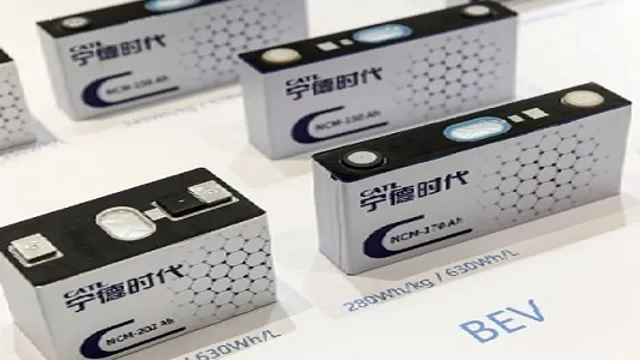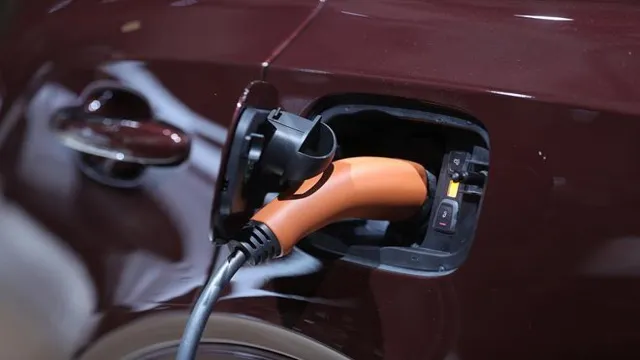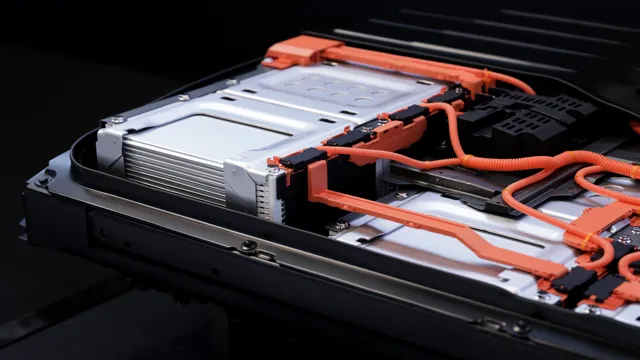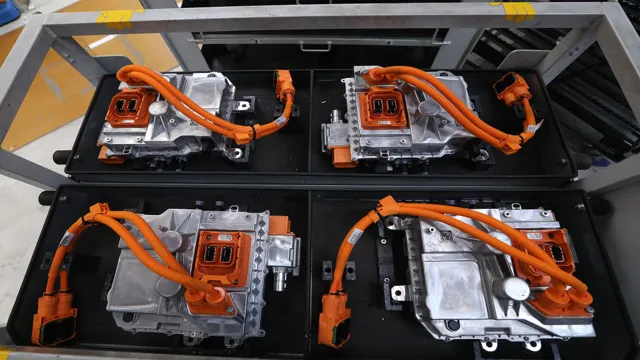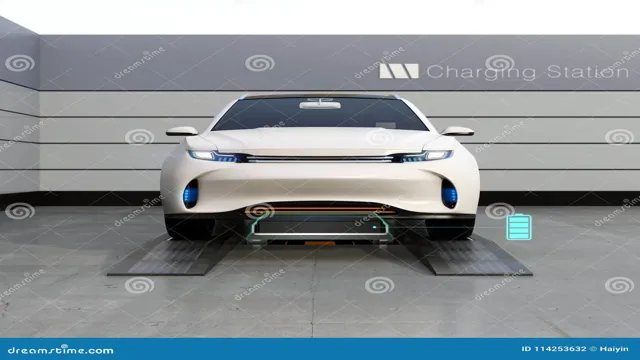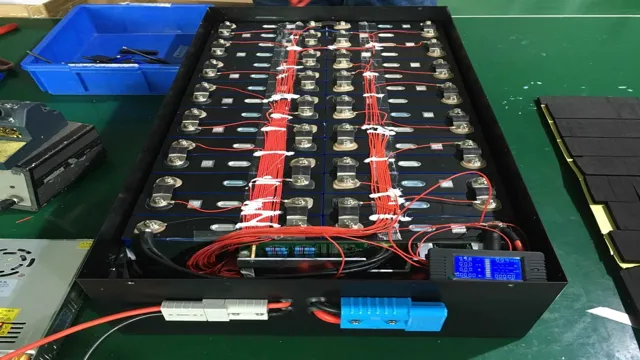Revolutionizing the Automotive Industry: The 1 Million Mile Electric Car Battery!
Imagine never having to recharge your phone battery or electric car again. Sound too good to be true? Thanks to revolutionary BatteryTech, it might soon become a reality. This breakthrough technology is set to transform our lives and change the way we use electronic devices.
With its longer lifespan and improved energy density, BatteryTech promises to solve the longstanding problem of limited battery life. But, how exactly does it work? In this blog post, we will delve into the world of BatteryTech — its science, benefits, and potential impact on our environment. So, sit back and get ready to be amazed.
Designing the 1 Million Mile Battery
The race to design the first 1 million mile electric car battery is on, and it’s not just about creating a longer-lasting battery. While range anxiety is a legitimate concern for electric vehicle owners, the bigger issue is the wear and tear on the battery over time. The more cycles a battery goes through, the more its capacity deteriorates until it eventually needs to be replaced.
This not only adds to the cost of owning an electric car but also raises concerns about the environmental impact of producing and disposing of batteries. Designing a battery that can last for 1 million miles would be a game-changer for the industry, making electric cars more cost-effective and sustainable in the long run. It’s a tall order, but scientists and engineers are working tirelessly to develop new materials, architectures, and manufacturing processes that can meet the challenge.
If successful, the 1 million mile battery could be the key to unlocking the full potential of electric transportation.
Using novel materials
As we move towards a more sustainable future, one of the biggest challenges we face is developing batteries that can go further and last longer. This is where the 1 Million Mile Battery comes in. To design this revolutionary battery, scientists are turning to novel materials that can improve performance and durability.
One of the most promising materials is silicon, which has the potential to increase the energy density of batteries by 10 times. However, silicon also has a tendency to expand and contract during charging and discharging, which can cause damage to the battery. To overcome this challenge, researchers are exploring ways to incorporate silicon into the battery structure without compromising its stability.
They are also investigating other materials, such as lithium iron phosphate, that can improve the efficiency and longevity of batteries. By using these innovative materials, scientists are making progress towards creating a battery that can withstand the wear and tear of daily use while powering electric vehicles for a million miles or more.

Advanced manufacturing techniques
Advanced manufacturing techniques have led to the development of some incredible innovations, such as the 1 Million Mile Battery. This groundbreaking battery is designed to last for a million miles, making it an ideal choice for electric vehicles and reducing concerns about expensive battery replacements. The battery is created using advanced manufacturing techniques, including precision laser cutting and nanomaterials engineering.
With these techniques, the battery can be constructed with incredible precision, ensuring it offers the highest level of performance over its lifetime. Additionally, the use of nanomaterials allows for greater energy density, giving the battery a longer lifespan and reducing the amount of space it takes up in the vehicle. As a result, electric vehicles can travel further on a single charge, making them a more practical and environmentally friendly alternative to traditional gasoline-powered cars.
So, with the 1 Million Mile Battery, we can truly see the future of advanced manufacturing in action.
The Benefits of a Long-Lasting Battery
The concept of an electric car running for 1 million miles with a single battery might sound too good to be true, but with advancements in battery technology, it might not be far-fetched. A long-lasting battery could revolutionize the automotive industry and make electric cars more practical and widely accepted. Several benefits come with a long-lasting battery, including reduced dependence on charging infrastructure, less frequent battery replacements, and ultimately, reduced carbon footprint.
Imagine not having to worry about the range of your electric vehicle, not having to spend on expensive battery replacements, and reducing your ecological footprint. The development of a 1 million mile electric car battery could change the game, and it is exciting to imagine the possibilities. With this kind of battery, we could finally have electric vehicles that are reliable, durable, and cost-effective.
Environmental sustainability
Environmental sustainability When it comes to environmental sustainability, a long-lasting battery is a game-changer. A battery that lasts longer means that fewer batteries will make their way to landfills. This reduces the amount of e-waste and toxic chemicals released into the environment, which has a positive impact on wildlife and humans alike.
In addition, a long-lasting battery reduces the need to constantly charge devices, saving energy and reducing carbon emissions. It also means that we can rely more on renewable energy sources, such as solar power, to charge our devices. By promoting long-lasting batteries, we can move towards a more sustainable future where technology and the environment can coexist.
So, if you want to make a small but impactful change for the planet, choose a device with a long-lasting battery.
Economic advantages
Having a long-lasting battery can bring a multitude of economic advantages to both individuals and businesses. For starters, a longer battery life means less frequent replacement or upgrade of devices, resulting in cost savings in the long run. This is especially significant for businesses that rely heavily on technology, such as those in the logistics industry or e-commerce businesses.
Longer battery life also translates to less downtime and increased productivity as employees can work without interruption. This is especially critical for employees who are working remotely and may not have access to a power outlet at all times. Additionally, a longer battery life can lead to more sustainable practices as fewer batteries are discarded, contributing to the reduction of electronic waste.
Overall, a long-lasting battery provides tangible economic benefits and contributes to sustainable practices, making it a valuable investment for both personal and business use.
Improved energy security
Improved Energy Security: The Benefits of a Long-Lasting Battery In today’s world, where energy is becoming a major concern, the idea of energy security has become critical. With the evolution of technology, batteries have become a vital component in our day-to-day lives, from powering our smartphones to running our electric cars. However, the need for batteries with long-lasting power has become increasingly important for improving energy security.
Long-lasting batteries can help reduce our dependence on the grid and increase our energy resilience during power outages. The benefits of a long-lasting battery in terms of energy security are numerous. They can be used for backup power, helping to reduce use during peak hours, and enabling homeowners to power their homes with clean energy, such as solar.
Additionally, they can be used to store locally generated energy, reducing dependence on the grid and helping to balance the load on the energy system. A long-lasting battery is a strong investment in improving energy security, ensuring we have the power we need when we need it.
Real-Life Application of the Battery
The 1 million mile electric car battery has been a hot topic in the automotive industry, as it promises to revolutionize the way we power our vehicles. This battery is designed to last for over a million miles, eliminating the need for frequent replacements and reducing our carbon footprint. This could also lead to significant savings for car owners, as they would no longer have to spend money on costly battery replacements.
Furthermore, the extended lifespan of this battery could make electric cars more appealing to consumers who are concerned about the environment, but hesitant to invest in a vehicle with a shorter battery life. The potential real-life application of this battery could be enormous, as it has the ability to transform the way we think about electric cars and their role in the future of transportation.
Long-range EVs
Long-range electric vehicles (EVs) are becoming increasingly popular as consumers prioritize environmentally friendly vehicles with extended driving ranges. The real-life application of the battery is evident in the success of these vehicles, which rely on advanced lithium-ion batteries to provide extended driving ranges of 300 miles or more. The batteries play a crucial role in making these vehicles viable alternatives to traditional gas-powered cars, and they have come a long way in terms of performance and affordability.
As technology continues to advance, we can expect even more impressive long-range EVs to hit the market in the coming years. These vehicles offer the perfect blend of practicality, convenience, and sustainability, making them an ideal choice for forward-thinking car buyers.
Powering homes & buildings
When it comes to powering our homes and buildings, batteries have proven to be an excellent tool. In fact, in recent years, we have seen an increase in the use of large-scale batteries for energy storage. This not only allows for a more reliable and efficient energy supply but also helps reduce carbon emissions.
The batteries store excess energy generated during periods of low demand, such as at night when solar panels are not producing, and then release that energy during periods of high demand. This helps balance the energy grid and ensure a constant supply of electricity. It’s like having a backup generator for your house, but on a much larger scale.
And with the advancement of technology, we can expect to see even more innovative uses of batteries in the future.
Future Prospects & Possibilities
Exciting advancements in electric vehicle technology have prompted discussions about the possibility of creating a 1 million mile electric car battery. This revolutionary battery would give electric vehicles the potential to travel much farther than their current range of around 300-400 miles per charge, making EVs more practical for long-distance travel. Although this technology is still in the experimental phase, there is optimism that it could become a reality in the not-too-distant future.
With the development of robust battery materials and innovative battery management systems, researchers are hopeful that a million-mile EV battery could be achieved within a decade. Such a battery would likely be a game-changer for the automotive industry, making EVs an even more viable and sustainable option for drivers. With its longer lifespan, this ultra-durable battery could potentially reduce the environmental impact of EV production, as fewer resources would be needed over its lifetime.
In short, a 1 million mile electric car battery represents an exciting advancement that could shape the future of transportation as we know it.
Conclusion
After considering the potential impact of a 1 million mile electric car battery, it’s clear that this technology could be a game changer for the automotive industry. With longer lifespans and less frequent battery replacements, electric cars could become a more viable option for consumers. Additionally, this innovation could significantly reduce the environmental impact of producing and disposing of batteries.
So, with a 1 million mile battery, the future of electric cars is looking brighter than ever before. Heck, we might even have to start worrying about the roads wearing out before the batteries do!”
FAQs
What is a 1 million mile electric car battery?
A 1 million mile electric car battery is a battery that is designed to last for one million miles of use in an electric vehicle.
What are the benefits of a 1 million mile electric car battery?
The benefits of a 1 million mile electric car battery include lower operating costs, longer battery life, and reduced environmental impact.
What technology is used to make a 1 million mile electric car battery possible?
A 1 million mile electric car battery is made possible through the use of advanced battery chemistry, such as silicon anode technology and solid-state electrolytes.
How does the lifespan of a 1 million mile electric car battery compare to traditional car batteries?
Traditional car batteries typically have a lifespan of around 3-5 years, while a 1 million mile electric car battery is designed to last for more than a decade.
